There is a wild diligence surrounding Matthew Sage. So when he tells me he has left Chicago and returned to Colorado to try farming with his young family, it makes sense. It is the end of summer, and on the farm, snap peas are finishing, tomatoes are beginning. He recounts the memory of a grasshopper infestation that required evening missions with scissors to combat, and the recent acquisition of a yurt for the property.
"It's kind of like an ambient summer camp out here. We have outbuildings for people to stay in, and we have a studio. We adopted a yurt from a friend of ours—I think we're going to try to turn it into an artist residency, but we have some work ahead of us," he says. We are chatting over Zoom, and Windy the farm dog is nosing up to the Sage kitchen table.
A curious musician moved by microscopic attention to his surroundings, Sage has a prolific output as a sociologist via sound. There's Chamber Music for Lawnmowers ("an unanswered question about the harmonics of landscape practices"), and Paradise Crick, a first release for RVNG Intl. The record feels like a dance between Joan Didion's telling of westward expansion and campfire stories voiced in electroacoustic stanzas. Sage remains confessional in collaboration—notably as a member of America's favorite experimental jazz quartet boy band Fuubutsushi, and most recently appearing on claire rousay's single "Just."
While I want to pound out pages on sustainable farming practices as told to me by Sage, this is about music and place. This is about listening. This is about being so attuned to your surroundings that you stay awake late, balancing the duties of caregiving to a preschooler while stretching your arms upward to record sounds from a fussy barn lightbulb with a Tascam.
There's a playfulness present in Tender / Wading—the kind of feeling a latchkey kid gets in those few hours your parents aren't home. No audiences, no consequences. Sage teaches himself clarinet on an eighty-dollar thrifted Yamaha for this record, chases magpies with microphones, and develops percussive layers by dropping stones into dirt fields. Punching through the white-noise hiss of old appliances in old spaces is a slightly detuned Hamilton piano, and the eclectic fragments of a modular synthesizer.
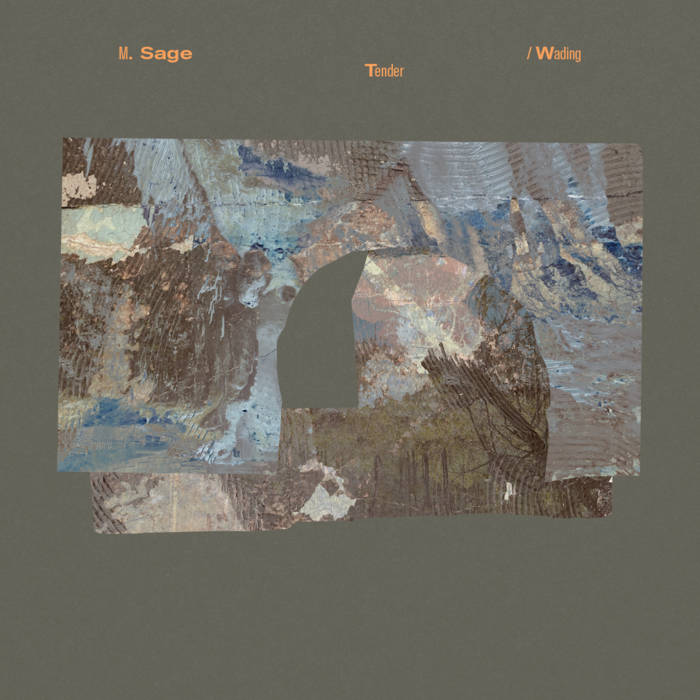
Carolyn Zaldivar Snow: Did I get this right? You taught yourself clarinet recently as a curiosity?
Matthew Sage: I am a serial hobbyist. I've been playing drums and guitar and synthesizers for twenty years now or so. I love them, and I'm also bored with them. I often find a new instrument for each album that I'm working on, and learn that instrument in a rudimentary way, to build into the album. For Paradise Crick, it was the Moog Matriarch—that was my "I'm going to learn this kind of synthesis" moment. Then, in this record, I found a clarinet for very cheap at a junk store, and felt it sounded like a fun way to pass the time. For my first year or so out here on the property, I walked around and played the clarinet a lot in our pastures.
I also built the record around a piano, which is that piano right there. (Matt from his digital perch is motioning to a dinosaur of an upright in the background.) Notably from Chicago—it's a Hamilton, and it's tuned itself to 420, because if we push it any harder, the pin block could snap. I have to sort of push it into tune digitally when I'm recording. Sometimes I just let it stay out of tune, and it sounds kind of nice and chorus-y and churchy. I built the record by writing songs on the piano in the keys that I know how to play on clarinet, then added clarinet. It was kind of reverse-engineered so that I could play clarinet live.
Carolyn: So, you chose the clarinet just because it happened to be at the junk store?
Matthew: Exactly, yep. I love the sound of the clarinet, and I kind of always have. My dear friend, Patrick Shiroishi, who's also in Fuubutsushi, was like, “You're an idiot, you should have learned saxophone first." I have since acquired a pretty crummy saxophone. I am a collector of junk instruments. I adopt outcasts and bring them home to try and fix them. I'm still constantly learning, and I think part of my approach is a beginner's mind sort of thing. I've never had any musical training; it's all made up. I've just learned by playing and learning by ear. I think that informs how I approach instruments, too.
Carolyn: Looking at your body of work, I would consider you quite technical and decisive in a studio environment. So, are you able to navigate being self-taught along with these really tight parameters?
Matthew: I think a lot of it is just being at the studio with my friends. It gave me room to teach myself with lower stakes instead of having to play in front of an audience, which can be embarrassing. I just play along with myself until I'm feeling more comfortable. I've always just loved learning, and the studio is sort of the main instrument I play.
Carolyn: You also have a lot of field recordings in your work.
Matthew: I think field recordings can always go very wrong or very right.
Carolyn: What's the last thing you went to record that caught your interest?
Matthew: When I'm working on a record, I have a folder, and I just fill it up when I'm working. I'm constantly collecting and walking around with my Tascam or my Zoom [handheld recorders]. If I'm not using that, I use my voice memo. I have some really nice voice memos in the last few days of my kid singing, because he's been singing a lot lately. There is a time of year when Colorado is really dry, so when we get amphibian sounds, it's a really brief window in the spring. There's this really incredible din of toads—that's actually the sound that starts the record. I just heard it, maybe two weeks ago, again for the first time since that recording. It's just a beautiful din of toads down in the ditch at the front of our property, and it's one of my favorite sounds.
Carolyn: I thought it was cicadas.
Matthew: Yeah, it's toads, and it's also mixed with a really loud barn light that's in our backyard, and the sound of the barn light and the toads together is, like—chef's kiss.
Carolyn: How did you get the crackle on the barn light? Like, how many tries did it take you? Were you up on a stool with microphones?
Matthew: I'm pretty tall, and the barn light's pretty loud, so I was just kind of reaching with the gain pretty high on my microphone. It's pretty quiet out here, so I got it pretty quick. I'm always massaging things a little bit in production to make them feel a little bit larger than life.
Carolyn: I really like the track "Telegraph Weed Waltz"—I hear a lot of white noise and static elements in your work. Is that born out of working with a Eurorack and harnessing noise, or is that more regional to your surroundings? For example, the barn light?
Matthew: I think it's some of both. That song is using field recordings in some of my favorite ways on the record, because that really big bass boom timpani kind of sound is me throwing a rock into the dirt.
Carolyn: I wondered, because I knew you were a drummer. That's a uniquely deep kick. But go on.
Matthew: So I sampled dropping a big stone into a patch of dirt, then the magpie bird sounds and wind chimes came from the same fifteen minutes of field recording. I went into Ableton and cut those up into samples to build. That song started with the piano part, and then I was like, “Oh, this has a really nice waltz to it. It would be great if I could get a nice aleatoric percussion feeling," and so I recorded a bunch of stuff and was like, “Alright, I guess I'll cut this up into a rhythm."
My experiences working with synthesis and electronics are heightened by my experiences listening to the environment that I'm in. They feed off of each other, and often overlap pretty quickly in the studio.
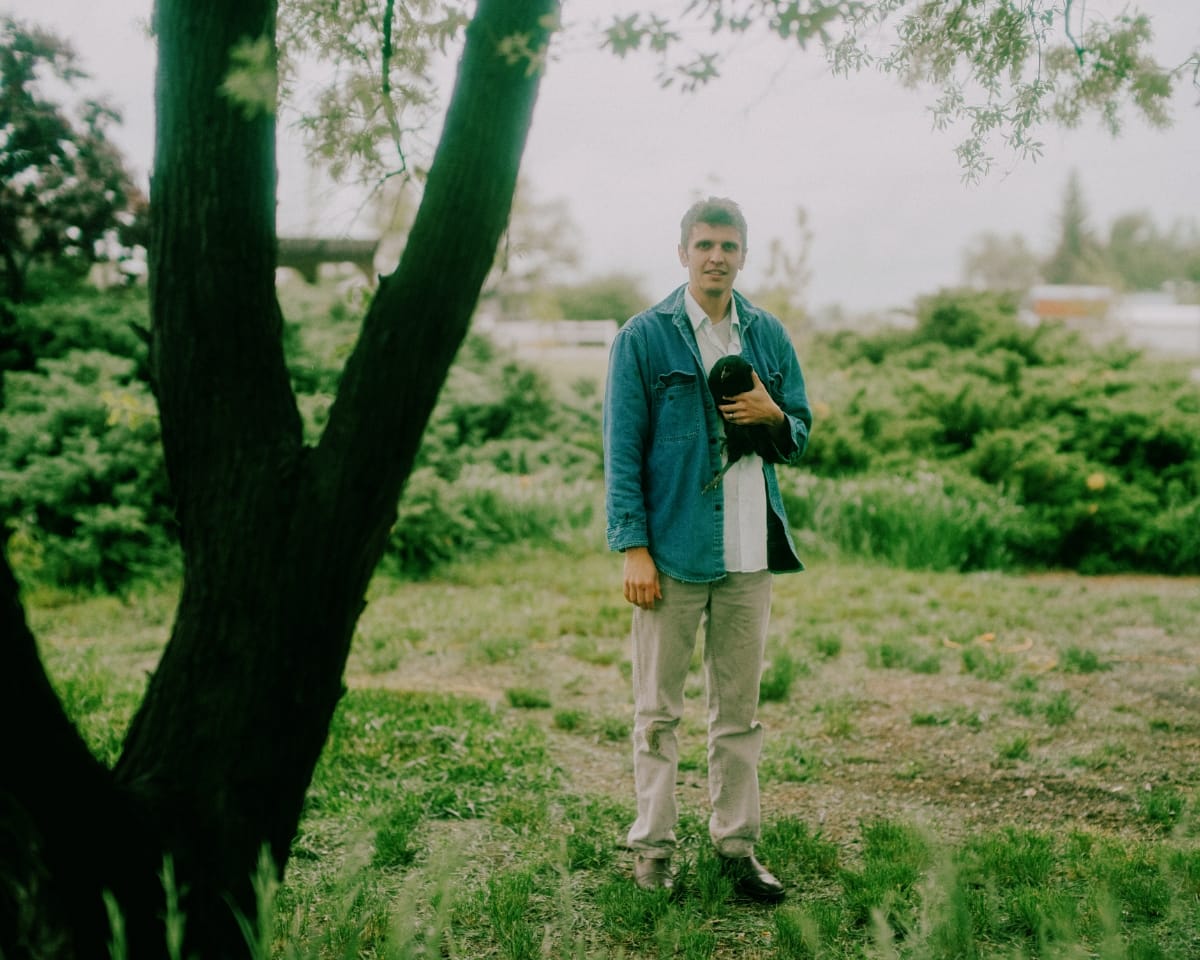
Carolyn: What was that transition like between Chicago and rural Colorado, and your auditory perception?
Matthew: Shocking! We lived around the corner from a fire station for five years, and so Chicago was loud. It's funny how much we adapt to that sort of soundscape and don't realize how much we're used to it. The constant low-frequency rumble of the trains and the traffic and all that kind of stuff. When we moved to Colorado, I couldn't sleep the first month we were here because it was just too quiet. I've just become very reliant on white noise machines to sleep; I need that hiss. I also have terrible tinnitus, so it helps with that, but the soundscape here is so different from the soundscape in Chicago. It understandably had an enormous effect on the record. I think if you compare the new album to Paradise Crick—Paradise Crick is supposed to be a sort of naturalist synthesis ecoscape, but it's so busy and cluttered. There's so much noise in it. If you listen to Tender / Wading, it's so much quieter by comparison. I say this as my dog slurps water next to us.
I'm often making music in response to the landscape that I'm in. Paradise Crick was, "city boy misses nature," and this record is very wide open. There's a lot more open space in it, a quietude.
Carolyn: If I can be so bold as to say, you seem restless, no matter where you're situated. If you're in rural Colorado, you long for the city and vice versa. Is that accurate?
Matthew: Very much so. There's a lot of desire built into my recording practice and in the music that I make. I do miss parts about being in the city, but I've always wanted to live in the country. When my partner and I first started dating fifteen years ago, we kind of joked that maybe one day we could have a couple of acres and a little farm, and that would be fun. So now that we're there, I think this record is kind of like a reckoning with that desire. And understanding how much work goes into something like that. If there's restlessness, I think it's the restlessness of managing the expectation of what it's like to live on acreage, and also the amount of work that comes with it. I think the same goes for parenthood. This record's really autobiographical, and it's about my coming to terms with how hard it is to be a parent, too. How much challenge and satisfaction there are in both. Working on a piece of land and working as a parent.
Carolyn: I'm a parent as well. I have a nine-year-old who might even make an appearance in this interview if he needs a snack.
Matthew: Snacks are life, I get it.
Carolyn: Maybe I am gendering this, but I just read a book called The Baby on the Fire Escape, which was about mostly women who are mid-century contemporary artists navigating caregiving responsibilities with the nurturing of art. How does that feel for you? How does it feel to manage all these things that need nurturing, be it land, your dog, your child, or your music?
Matthew: That's what this whole record is about, I think, to me. My partner and I are both pretty genderqueer. Lynette is the breadwinner in our family, and she's incredible. My role in our family and our partnership is mostly that I am the housekeeper. I do all the cooking and a decent amount of the cleaning, and the grocery shopping. When my son was younger, I did a lot of caregiving, and then as he's gotten older, he's started doing school more, which has given me more time for music. I was also a college professor for ten years, and that recently changed. I'm not teaching anymore.
This record is very much about me being softer with myself. I felt a lot of pressure—or I guess I felt culture imposing pressure on me. It was a challenge to navigate receiving that pressure to be a 'man' (quote-unquote) on a piece of land, but then also be a parent and to be tender, and be soft with myself and my partner and my kid. Also, with the land that we're on, because the land was neglected for thirty years, it was in really bad shape. We have had to be sweet to it in order for it to bounce back. That's the driving force of what I work on. I taught gender studies and gender and media studies, and so I'm pretty in touch with the vocabulary of this stuff. The praxis of being a male person and trying to be present, slow, and attentive to a child and his emotional needs and stuff. It's hard. I think a lot of the record is constant negotiation happening in the songs.
Carolyn: What's your favorite track on this record?
Matthew: The one where I feel like it started to make sense to me was "Wading the Plain."
I really love the balance that's happening. I recorded that song three times. It started as a piano melody, and then a set of changes on the piano. I wrote it on our living room piano, and it felt right. I recorded it, and the first recording sounded terrible. I didn't like it, it just didn't work, and then I played a version of it live a few times, and was like, “Oh, I think this might be working better." So I re-recorded it. I really believed in the melody, and I believed in the clarinet part that comes in afterwards, as the lyrical part of it. I had to fight for it to get to where I wanted it. As soon as I got it where I wanted it, I was like, “Okay, now it's time to mess it up." That's when I added all of the squirrelly electronic, dial-up modem sounds that I made on my modular.
I think that sort of conflict can happen between relatively organic or pretty piano and clarinet, ambient stuff. That sort of gritty Mills College synthesis. I've explained it to people as if you're out on a hike in nature, but you just feel the tug of your phone in your pocket. You know that someone's messaging you on Instagram or whatever. This constant push and pull that we're feeling between being in an actual place and in digital space feels really elevated. I think it was easier to be busy on my phone in the city, because I was on the bus or the train. Now I'm mowing the lawn in a giant pasture, checking my phone, and there is an interesting tension.
Carolyn: Is there anything you wish somebody would ask you about this record or this iteration of your life right now? That you haven't had an opportunity to express?
Matthew: I was, for a very long time, a very prolific musician, and put out so much stuff when I was younger. I've really slowed down. Part of that is that I'm working with a label like RVNG, which kind of demands a different release schedule than when I could just drop album after album on my Bandcamp or whatever. I think one thing I want to endorse for everyone with a creative practice is to let your work sit longer. So it's maybe not a question, but it's like a proclamation.
Carolyn: Well, let me frame this, because I find that interesting, and maybe this is personal to me, but if I see one more weekly EP release from fellow ambient musicians, I'm going to fall into the ocean. Please slow down, kids.
Matthew: I'll go with you, I'll fall into the same ocean with you, because I feel the same way.
Carolyn: There's a camp that says you really do have to have these fresh releases and these cycles because they have stats to prove it. Then there's the heart of the artist, which is, it's ready when it's ready. So let me rephrase. You're slowing down as you release, and I don't know if that has to do with thoughtfulness or time available as a caregiver—or really nurturing your practice—but what does that feel like for you? And how is that changing?
Matthew: I have found that when I'm working, it helps to be sloppy and fast at first. I make a lot, and I make it really quickly, and I'll crank out, like, thirty or forty demos over the course of six months, and it's really exciting. When I was younger, I would make an album from that, and it would be almost done. I would mix it over a weekend and do the art, and it felt ready to post or publish. Now that I'm older, there's a step in my practice that I call fermentation. I’ll make fifty or sixty songs, and they go into a pool, and then I'll just walk away for six months and do other things. I'll come back to it after it's been fermenting for a while, and that's where I start to see things that are bubbling up. Songs that I thought were really good actually kind of suck, and then maybe the songs that I was like, “This is half-cooked, this isn't really great"—I'll come back and be like, “Wow, this actually has a lot more going for it than I thought it did."
Part of getting older is understanding that experiences are shaping my practice. I think a lot of musicians are going to come for me for saying this, but I'm just going to take their heat. Musicians are constantly putting things out because they feel like they're required to in order to stay relevant. I think that their work deserves the gravity of having more lived experience imbued into it, and that comes from moving slower, and letting experiences add more to their work. For me, that lived experience is not like "I went to France..." or whatever. It's like, instead, my lived experiences lately are that I have gotten really good at packing lunches. Or, I have been battling a grasshopper infestation for two years, and that's a lived experience, and it's been challenging. We accomplished getting rid of most of the grasshoppers. The answer was chickens.
Carolyn: Are they the bigger grasshoppers where you are? My grandparents were farmers, and I have a memory of my grandfather picking them off with BB guns. They were huge.
Matthew: Uh-huh. Part of taking care of a piece of land is that you have to do mitigation. Sometimes that mitigation feels like hostility. So, we had to fight back by literally chopping [the grasshoppers'] heads off with scissors at night. They would land on our house by the thousands, then we would go out with scissors as they fell asleep when it started to get cool, because we had no other way to get rid of them. Now the chickens do that part for us.
Carolyn: You talk about this practice that can feel hostile. When you're putting together a record, and you have to cut things, and you have to edit yourself—what feels hostile in your own practice? What feels like taking scissors to grasshoppers for preservation?
Matthew: That's a really good question, because it's so applicable. I hate cutting songs. I make demos, and I love the process of making fifty or seventy demos, and it's always so hard for me to distill it down into fitting on a single LP. When I finished Tender / Wading, it was a double LP that needed to be about eighty minutes. Like, there's a lot here, and it felt important to have all of this here. The label encouraged me to consider not doing that, and they did so in a very nurturing way, but were kind of, like, see what happens if you make it a single LP. Culling it down by half felt like killing grasshoppers, but in distilling it made every second count a little bit more. It's a forty-minute record instead of an eighty-minute record, and that part feels like killing grasshoppers, cutting something in half. That's a huge challenge. I carve away big chunks and delete whole songs or whole sections, and rearrange. It's subtractive, but not destructive. In some ways, that's what managing grasshoppers feels like. You're committing something that's pretty aggressive, or kind of hostile. I don't think it's destructive because the more we eliminate grasshoppers, the more native plants will grow. If we don't get rid of the grasshoppers, the native plants will never grow, and then we won't have pollinators, and then we're just going to live on a compacted field of ryegrass, and that's not very biodiverse. We have to commit a sort of destructive act in order to create.
Check out more like this:
 The TonearmChaz Underriner
The TonearmChaz Underriner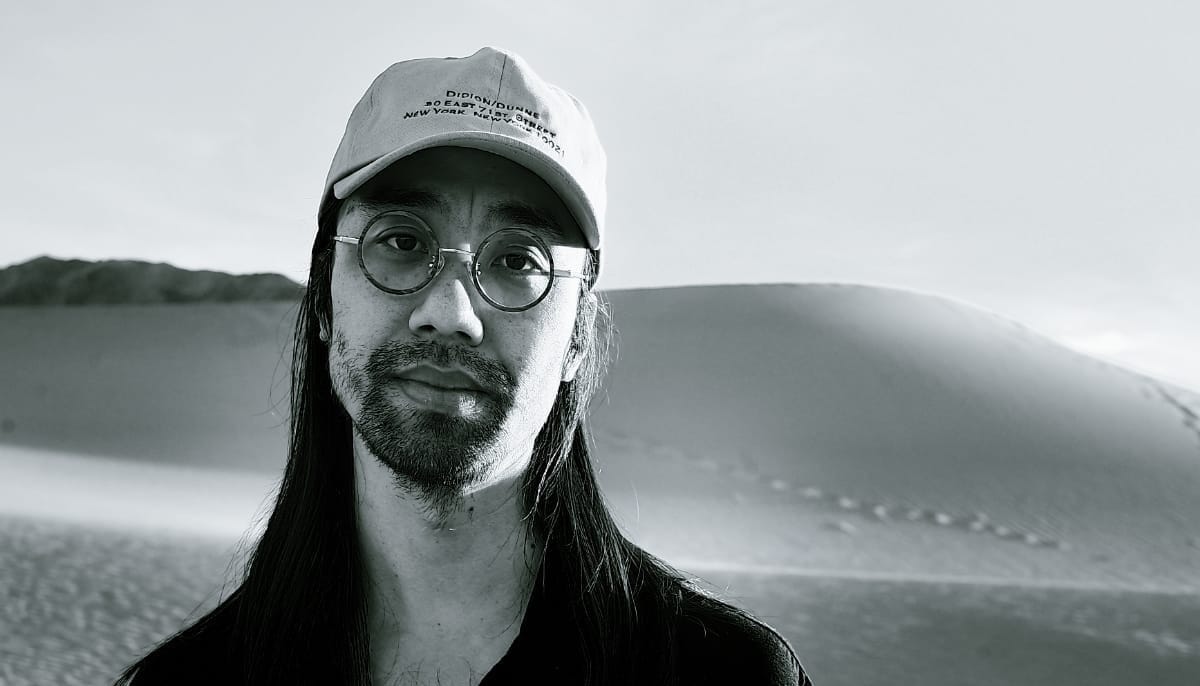
 The TonearmLawrence Peryer
The TonearmLawrence Peryer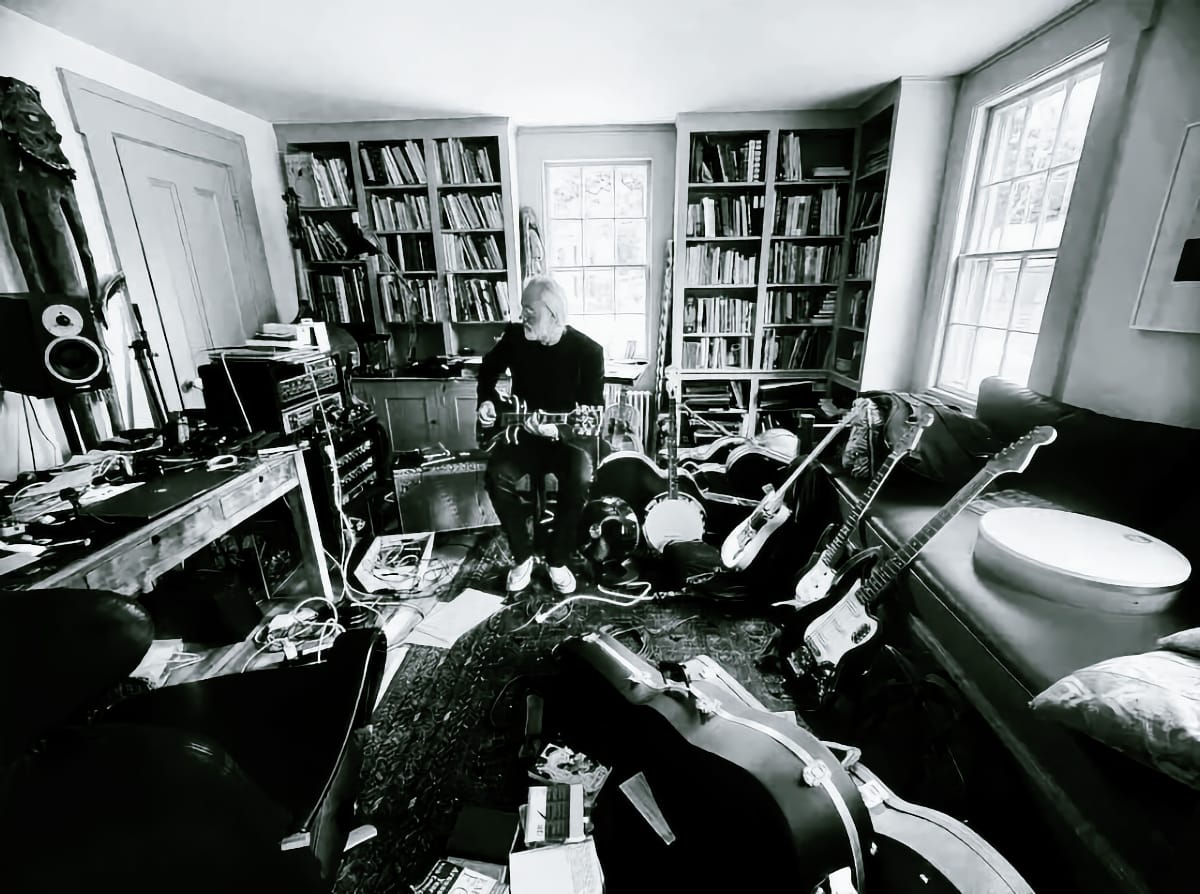


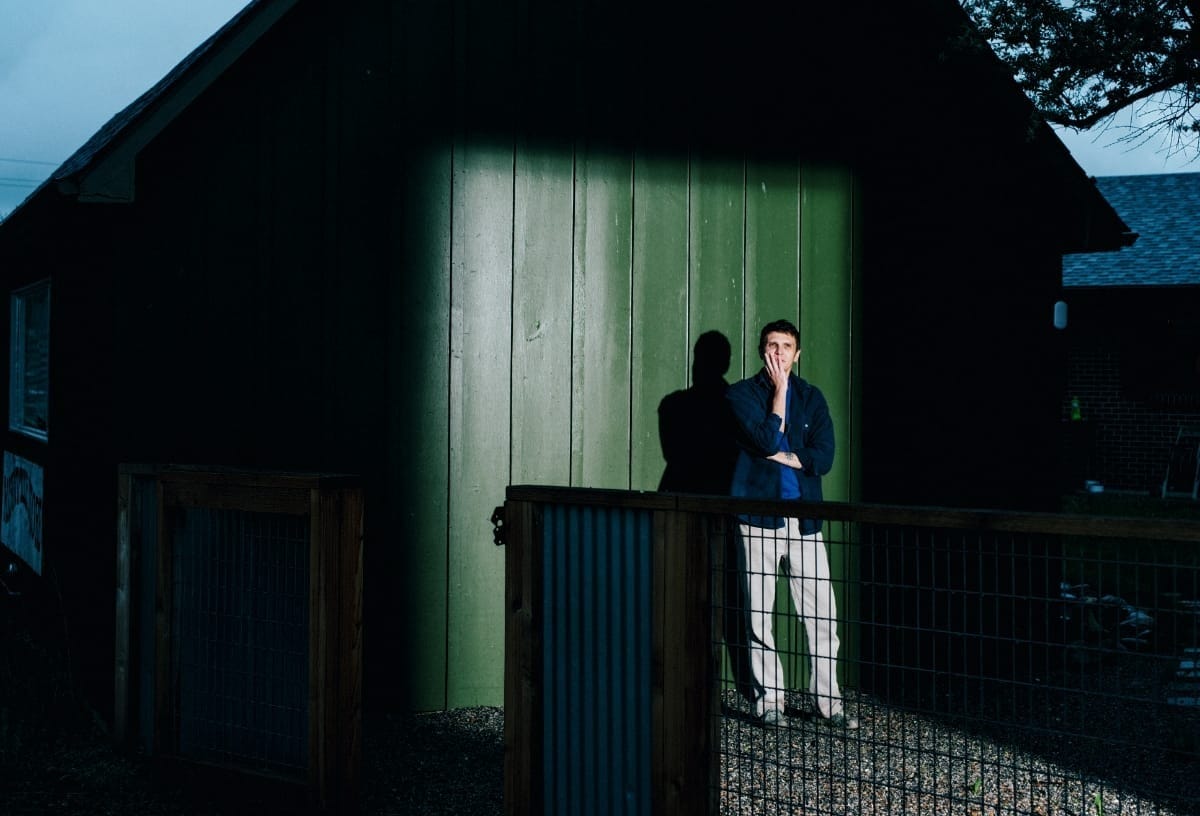

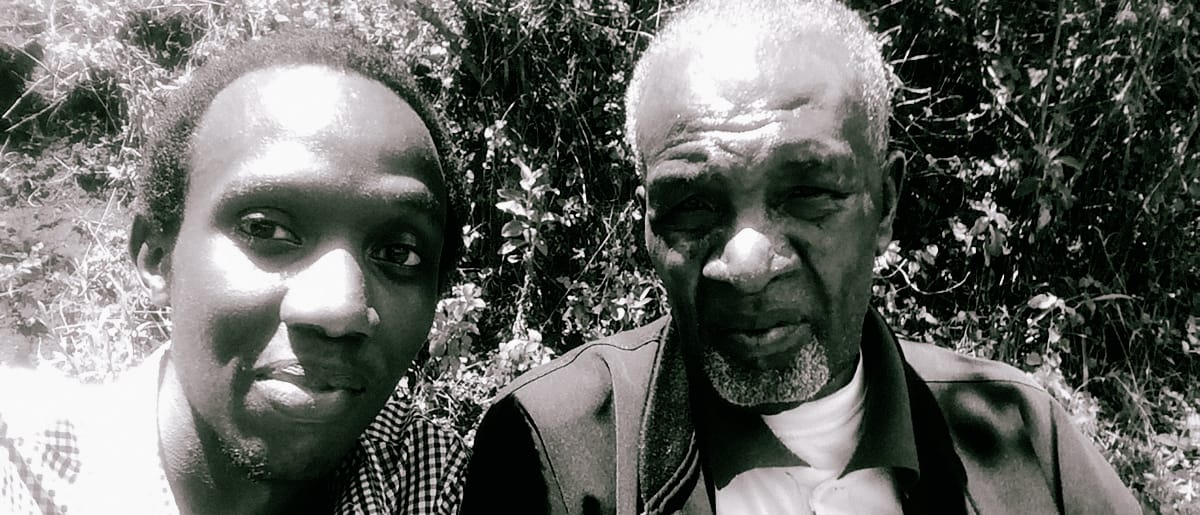
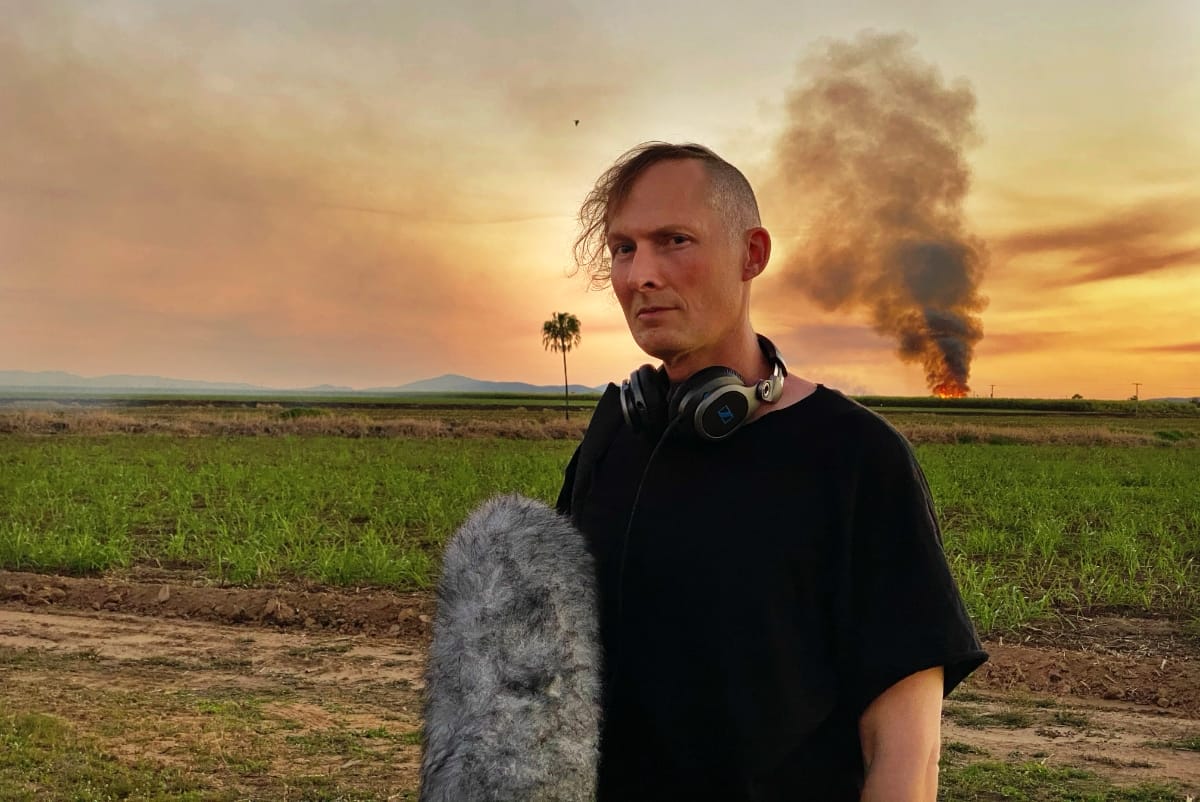
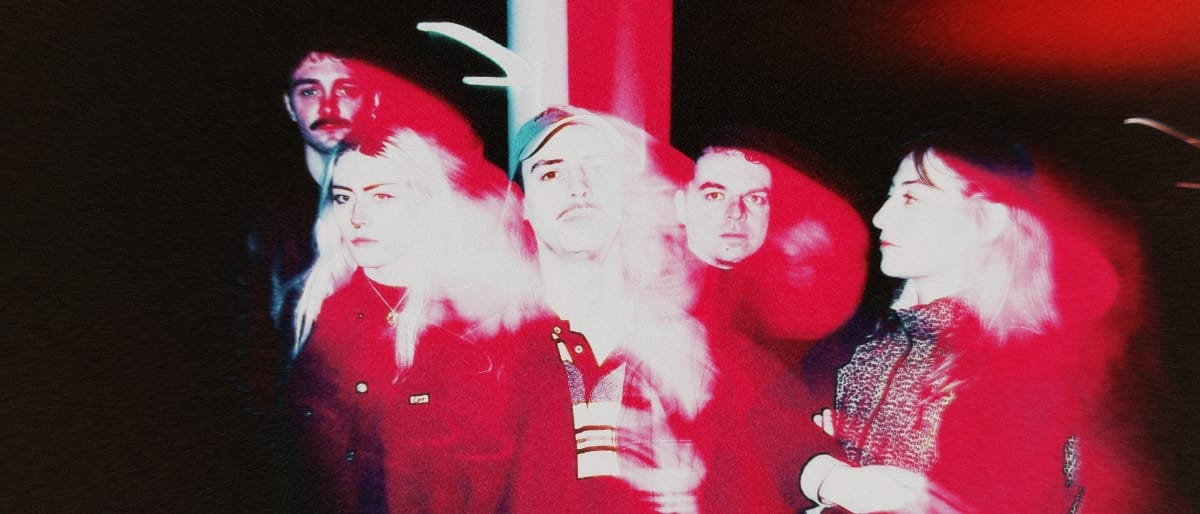
Comments